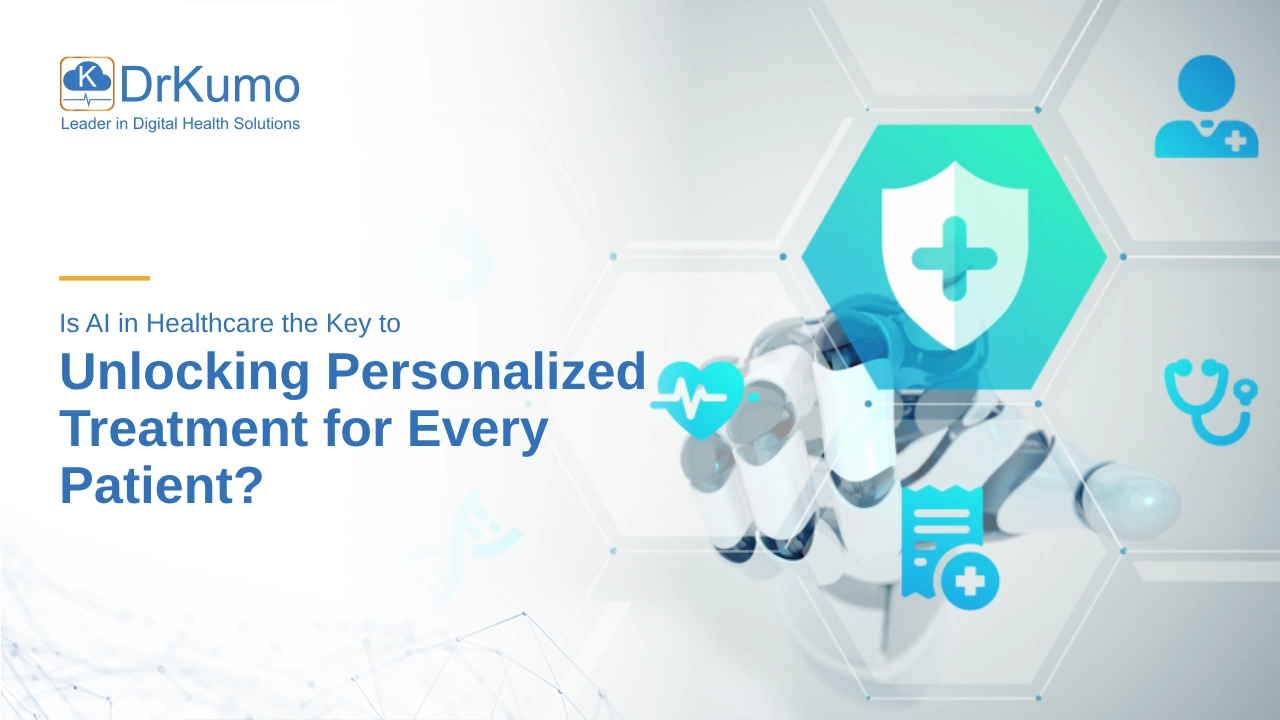Artificial Intelligence (AI) is rapidly advancing healthcare, offering new opportunities to improve how medical treatments are customized to each individual. Personalized medicine, which aims to align medical care with the unique characteristics of every patient, has long been a goal in modern healthcare.
Today, AI’s ability to rapidly process and analyse large volumes of health data is enabling more precise, effective treatment plans tailored to individual patient profiles. But how is AI achieving this, and could it be the key to making personalized treatment more widely accessible?
How AI is Revolutionizing Personalized Medicine
AI and machine learning (ML) technologies are being integrated into many areas of healthcare, including diagnostics, risk prediction, and treatment planning. In personalized medicine, AI supports clinicians in developing more tailored treatment plans by analyzing an individual’s genetic data, medical history, lifestyle factors, and real-time health metrics. By processing large datasets and identifying patterns that might be difficult for human clinicians to detect alone, AI can help recommend treatment options with greater precision.
In diagnostics, AI tools are increasingly being used to analyze medical images such as X-rays, MRIs, and CT scans. In certain applications, these tools have demonstrated accuracy comparable to that of experienced radiologists. These tools can assist clinicians in detecting subtle changes and anomalies early, enabling earlier interventions, a crucial aspect of personalized treatment.
Additionally, predictive analytics powered by AI can forecast potential health risks, such as heart disease, diabetes, or cancer, giving healthcare providers a chance to implement preventive measures before the patient develops symptoms.
AI’s potential extends beyond diagnosis into areas such as drug discovery, where machine learning models are used to analyze complex biological data and identify promising therapeutic candidates. This approach can accelerate certain stages of drug development, helping to bring more targeted treatments to market faster.
The Role of AI in Healthcare: The Evidence
The potential of AI to enhance healthcare delivery is increasingly supported by emerging research. For example, a study from Boston University published in 2024 demonstrated how AI technologies can analyze genetic data to identify biomarkers associated with various diseases. This capability allows healthcare providers to design more personalized treatment plans tailored to a patient’s genetic predispositions, with the goal of improving treatment effectiveness and reducing the risk of adverse effects.
The growing role of AI in personalized treatment reflects a broader shift in healthcare from reactive to more proactive care models. By using AI to predict health risks and tailor interventions, doctors can improve patient outcomes, reduce treatment delays, and minimize complications. However, challenges such as data privacy concerns, algorithm bias, and the need for regulatory oversight remain critical as AI continues to evolve.
How DrKumo’s Remote Patient Monitoring Services Align with AI-Powered Personalized Care
While AI is still evolving in many aspects of healthcare, technology-providers like DrKumo are already integrating AI-driven solutions to enhance patient care through remote patient monitoring (RPM). DrKumo offers an advanced platform that enables real-time monitoring of chronic conditions, including cardiovascular diseases, diabetes, and hypertension. This is supported by FDA-approved medical devices, including blood pressure monitors, glucose meters, and pulse oximeters, which securely transmit patient health data to healthcare providers.
The insights generated from DrKumo’s remote patient monitoring system help healthcare providers track patient progress and support timely adjustments to care plans. For example, if a patient’s blood pressure or glucose levels show concerning trends, the system can notify healthcare providers, who can then intervene and adjust treatment plans as necessary. While DrKumo’s system provides valuable data and insights to assist with personalized care, it works alongside traditional healthcare services, enabling timely intervention and continuous support for patients managing chronic conditions.
DrKumo’s focus on real-time monitoring and integration of AI-supported insights enables healthcare providers to deliver tailored care based on each patient’s evolving health data, closely aligning with industry efforts to improve outcomes through personalized approaches. By combining remote patient monitoring with AI-enhanced data analysis, DrKumo offers a comprehensive, data-driven solution for chronic care management that helps healthcare providers make more informed, timely decisions for patients managing long-term health conditions.
Takeaways
The future of healthcare is undoubtedly being shaped by AI, particularly in the realm of personalized treatment. By utilizing AI’s ability to analyse vast amounts of data, healthcare providers can create highly personalized treatment plans that are more effective and tailored to the individual’s unique needs. From diagnostics to drug discovery and patient management, AI offers incredible potential to improve patient outcomes.
However, as with any evolving technology, challenges remain. Ensuring patient privacy, addressing algorithmic bias, and creating regulatory frameworks for AI in healthcare will be critical for realizing its full potential. As AI technologies continue to mature and integrate into clinical workflows, the healthcare industry moves closer to a future where more personalized, data-driven care can enhance patient experiences and improve outcomes.
Discover how AI-driven healthcare solutions can personalize treatment and improve patient outcomes. Contact DrKumo today to learn more about our remote patient monitoring technology solution.
Disclaimer: The study referenced in this article is independent and not associated with DrKumo. The findings are based on research conducted elsewhere and are used for informational purposes only. While AI has the potential to revolutionize healthcare, the effectiveness of AI-driven solutions can vary, and it is important to combine these technologies with traditional healthcare practices for optimal patient care.








